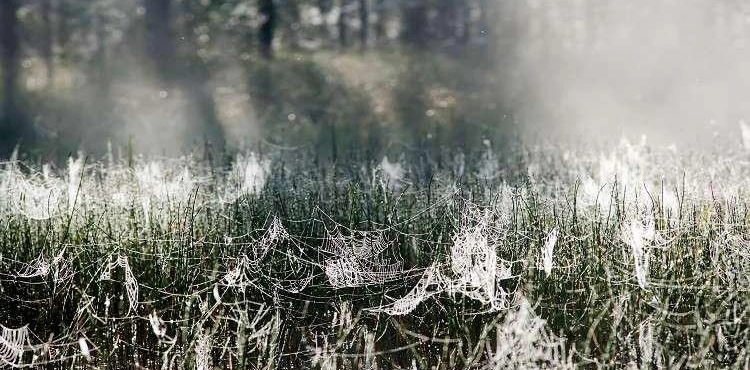Scientists from the Massachusetts Institute of Technology have studied spider web threads and have found it to be as important as their elasticity and durability, and can be used when designing robots for robots.
A team of scientists at the Institute found that high humidity causes the compression and coagulation of the spider´s fibers at the same time, after studying the Neville spiders.
Compression of the spider web has been a phenomenon known to scientists for some time, and this was supposed to ensure a great tension for the threads. The compressed fibers are capable of delivering vibrations, helping the spider to control any prey in the network.
Scientists began to study the effect of moisture on spider silk, and used a cylindrical chamber to change air humidity. They carried out some laboratory experiments and used computer models to simulate the behavior of the particle structures to determine how the moisture affects the torsion of amino acid molecules called proline.
Scientists have found that proleine plays the role of building blocks of spider silk protein.
Subsequent experiments have shown that proline-free fibers lose their ability to twist.
According to experts, the future will see the invention of a new polymeric material mimics the behavior of spider silk, and has a high sensitivity at the level of nanotechnology.
The specifications of that material can be used to design industrial muscles in controlled robots by changing air humidity.












